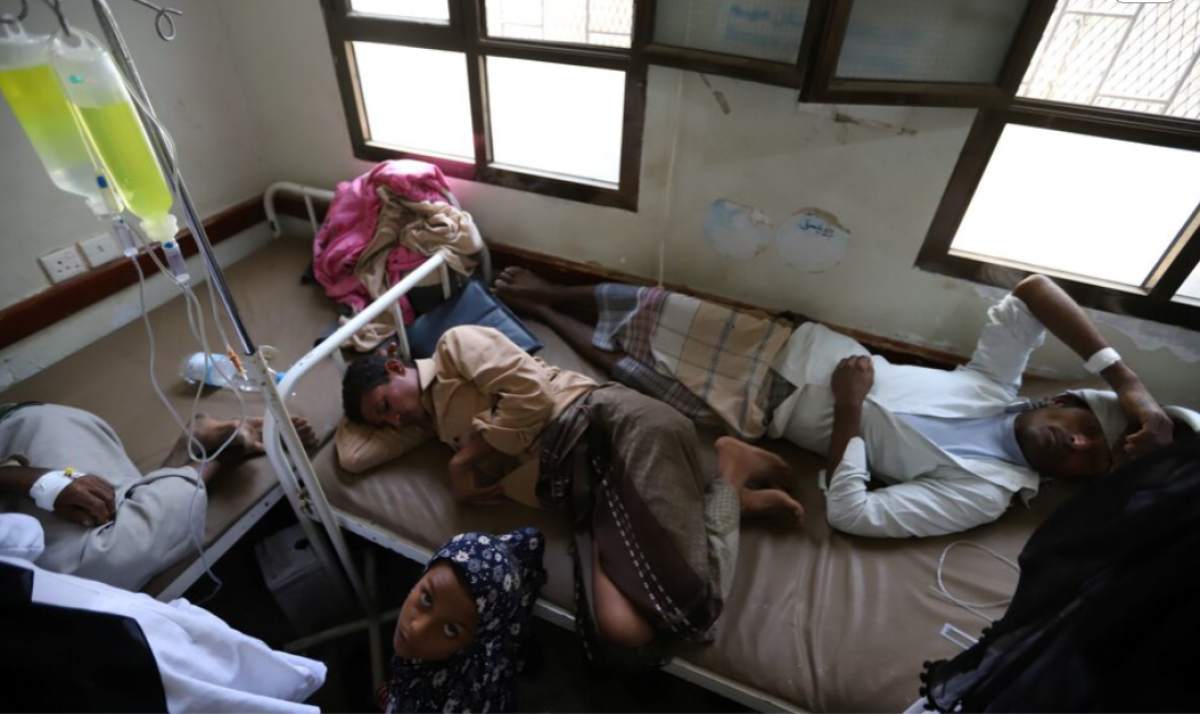The outbreaks of epidemics in the Houthi regions ... thousands of injuries amid the collapse of the health sector


The areas under the control of the Houthi group in Yemen are witnessing a dangerous outbreak of a new wave of epidemics, foremost of which is the patients of schistosomiasis and river blindness, amid the collapse of the health sector and the absence of control efforts.
Medical sources working in these areas reported that 30,000 new injuries were recorded in schistosomiasis, in addition to 18 thousand cases of river blindness during the past ten weeks, in six main governorates, including the Sanaa, Ibb, Al -Mahwit, Rima, Al -Hodeidah, and Taiz. /P>
The same sources confirmed the death of a number of injured people due to the absence of health care and the stopping of infectious diseases campaigns, at a time when the residents suffer from the deterioration of health conditions as a result of the continuation of the war and health neglect.
Workers in the health sector warned against an imminent disaster that threatens the residents of those areas, noting that the Houthis continue to prevent vaccines and control campaigns, in addition to outbreaks of corruption and looting of health resources.
The spread of schistosomiasis is due primarily due to the lack of safe drinking water for the population, which exacerbated the health crisis in light of the lack of basic services.
This disease is one of the most dangerous tropical diseases after malaria, as it can cause severe liver damage, intestine, bladder, spleen and lungs if it is not treated in time, according to the World Health Organization.
Besides, health facilities in Sana'a, Ibb and Al -Mahwit are a growing flow of cases of schistosomiasis and river blindness, especially between children and youth, in the absence of any effective intervention by the Houthi authorities.
River blindness or guilt as a parasitic disease that affects the skin and the eye is known, and is transmitted by the black fly bites that multiply in the waterways.
Yemen is the only country in Asia, which is affected by this disease, and according to the estimates of the Middle Eastern network “Emfoot”, where more than 1.3 million people face the risk of developing it in several governorates, including Sanaa, Hodeidah, Hajjah, Dhamar, and Taiz. p>
In light of these deteriorating circumstances, the population faces increasing challenges in obtaining the minimum health services, with the Houthi -backed Houthi group continuing to tighten their grip on the health sector, which threatens to exacerbate the health disaster in the country, according to medical sources confirmed by .